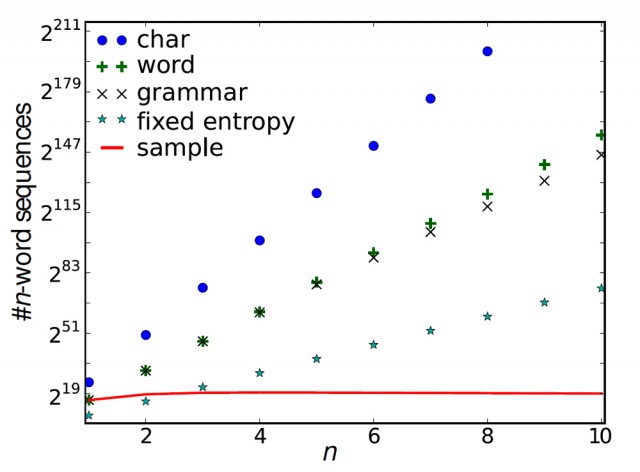
When it comes to long phrases used to defeat recent advances in password cracking, bigger isn't necessarily better, particularly when the phrases adhere to grammatical rules.
A team of Ph.D. and grad students at Carnegie Mellon University and the Massachusetts Institute of Technology have developed an algorithm that targets passcodes with a minimum number of 16 characters and built it into the freely available John the Ripper cracking program. The result: it was much more efficient at cracking passphrases such as "abiggerbetter password" or "thecommunistfairy" because they followed commonly used grammatical rules—in this case, ordering parts of speech in the sequence "determiner, adjective, noun." When tested against 1,434 passwords containing 16 or more characters, the grammar-aware cracker surpassed other state-of-the-art password crackers when the passcodes had grammatical structures, with 10 percent of the dataset cracked exclusively by the team’s algorithm.
The approach is significant because it comes as security experts are revising password policies to combat the growing sophistication of modern cracking techniques which make the average password weaker than ever before. A key strategy in making passwords more resilient is to use phrases that result in longer passcodes. Still, passphrases must remain memorable to the end user, so people often pick phrases or sentences. It turns out that grammatical structures dramatically narrow the possible combinations and sequences of words crackers must guess. One surprising outcome of the research is that the passphrase "Th3r3 can only b3 #1!" (with spaces removed) is one order of magnitude weaker than "Hammered asinine requirements" even though it contains more words. Better still is "My passw0rd is $uper str0ng!" because it requires significantly more tries to correctly guess.
Read 9 remaining paragraphs | Comments